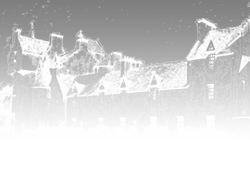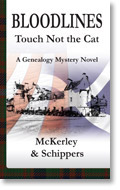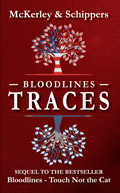The First Steps Toward Family Tree Research
- Sometimes the answers are right on your doorstep! Talk to parents, grandparents, uncles, aunties, (old) neighbors.
- Read about the years or era during which your relatives were children to get a feel of the circumstances they grew up in.
- Select a family name and be open-minded. Many people were illiterate prior to the 20th century, which could result in many different spellings of names, e.g.: Smith, Smythe, Smithe, Smyth, Schmidt. (When Tom McKerley put together his family tree he found 17 variants of his family name. e.g. McKarley, McKerlie, McCurley, etc.)
- Birth, Death and Marriage certificates (BDM). Since 1855 (UK) all BDM was a compulsory legal requirement by a local Registrar. The Registrar would record the event and issue an official certificate. The information contained makes them the stepping stones to trace back through the generations.
- Pre-1855 BDM: Old Parish Records (OPR) are the main source, especially births and marriages. Deaths were the least well kept and many parishes don’t have anything.
- OPR (UK) provides information on the Church of Scotland, (majority of the people during this time period). The Catholic Church; most registers did not start until the 19th Century.
Free Internet sites to help you get started:
- IGI International Genealogical Index
Compiled by researchers from the Church of Jesus Christ of Latter-Day Saints. This includes most of OPR entries and entries by church members, family papers or research. However, this should not be used as a substitute for OPR, but can help to reduce the time to trace an ancestor to a specific parish.
It also includes the 1880 USA Census and 1881 Canadian.
Beware of inaccuracies! - Commonwealth War Graves Commission
- www.genuki.org.uk
- www.cyndislist.com
Other Useful Sources (also on the Internet; in some cases subscription required):
- Maps (understanding information found in Census)
- Valuation Rolls (1855 – 1974; owners of property)
- Kirk Session Records * (personal information) * not be mistaken for Star Trek episodes, kirk meaning: church
- Cemetery Records
- Gravestone Inscriptions
- Family History Societies
- Newspaper archives
- Ancestry.com
- Genes Reunited
- Scotland’s People (for Scottish records only)







